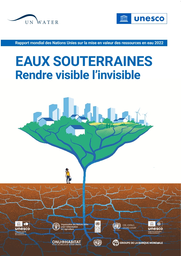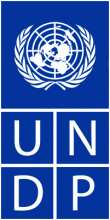Rapport mondial des Nations Unies sur la mise en valeur des ressources en eau 2022 : eaux souterraines : rendre visible l’invisible
Resource information
Date of publication
Mai 2021
Resource Language
ISBN / Resource ID
978-92-3-200252-5
Pages
249
Ce rapport met en lumière les principaux risques et tendances relatifs aux ressources en terres, en sols et en eau et présente les moyens par lesquels nous pourrons résoudre les problèmes de concurrence entre utilisateurs et produire les multiples avantages souhaitables pour les populations et l’environnement. Disponible dans toutes les langues officielles de l’ONU ainsi que sous format numérique pour une lecture sur appareil portable. Rapport complet disponible en 2022.





